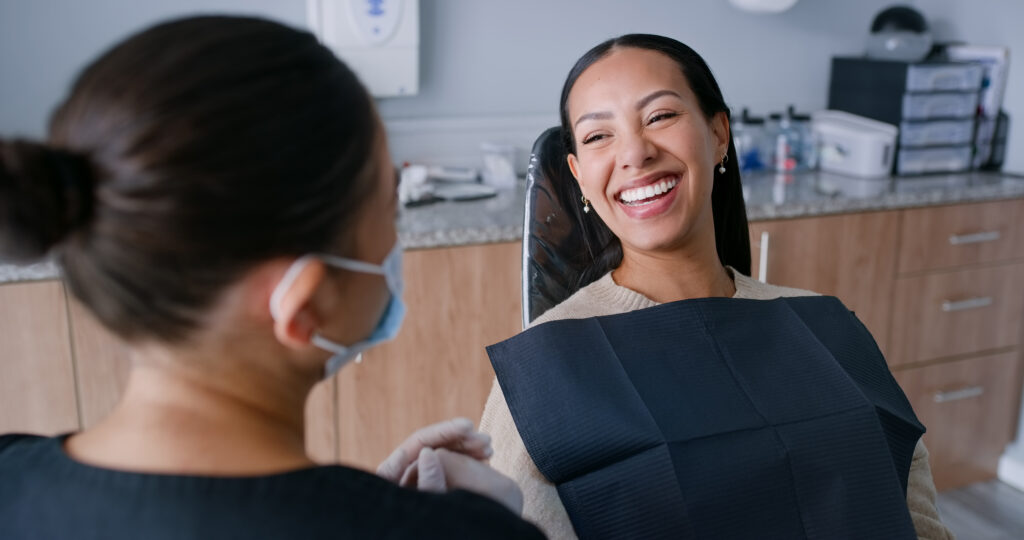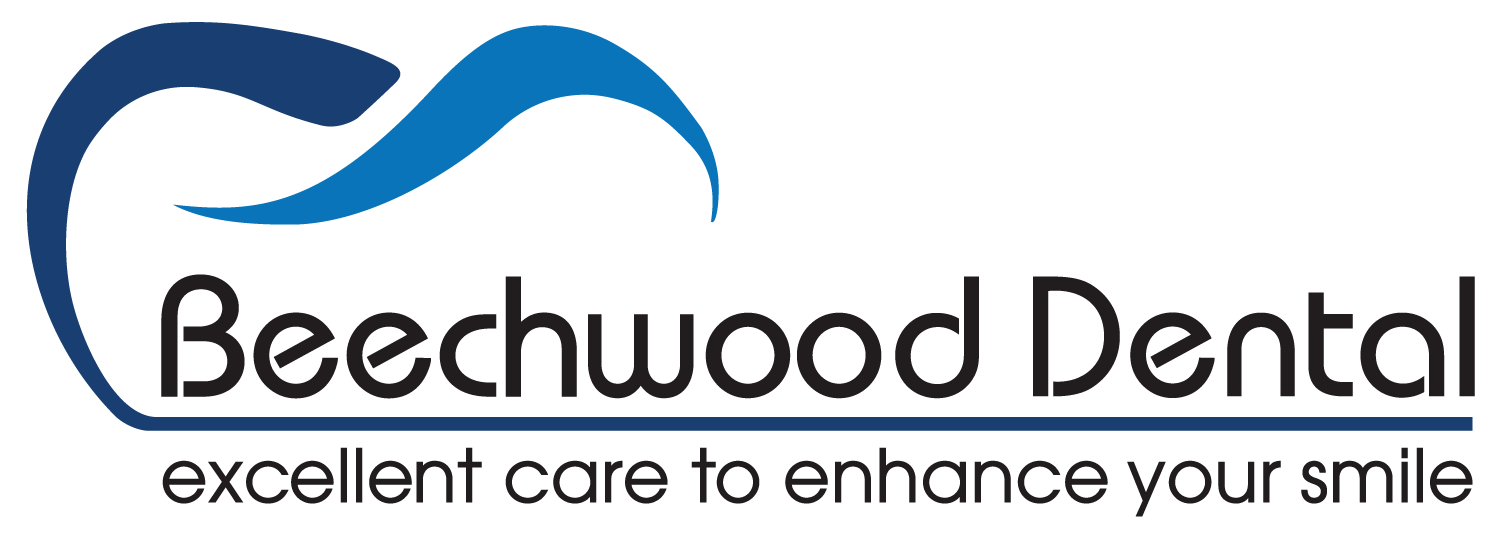Bruxism is a common condition where you grind or clench your teeth. Many people with bruxism don’t realize they have it because it often happens during sleep. At Beechwood Dental, Dr. Xuanyi Li has helped countless Clarksville, IN, patients recognize and treat this potentially damaging condition.
Bruxism is a dental concern that comes in two main forms. Sleep bruxism occurs while you’re sleeping and is considered a sleep-related movement disorder. Awake bruxism happens during daytime hours and is often linked to stress or concentration.

Why Bruxism Matters
When left untreated, teeth grinding can lead to serious dental problems. The constant pressure and friction can wear down your tooth enamel, leading to increased sensitivity and vulnerability to decay. You might notice flattened, fractured, or chipped teeth over time.
Beyond tooth damage, bruxism often causes jaw pain, headaches, and even disorders of the temporomandibular joints (TMJ). Many patients describe a dull headache that starts at the temples, ear pain, or a sore jaw upon waking.
Common Causes and Risk Factors
Understanding what triggers bruxism helps Dr. Xuanyi Li create effective treatment plans. While the exact causes remain unclear, several factors appear to increase your risk. Stress and anxiety often manifest physically through teeth clenching and grinding. Particularly stressful days might lead to more intense grinding at night.
Your age can be a factor, too. Bruxism is particularly common in young children but typically disappears by adolescence. Certain personality types, especially those who are aggressive, competitive, or hyperactive, may be more prone to bruxism.
Other potential factors include:
- Sleep disorders like sleep apnea
- Certain medications, including some antidepressants
- Recreational drugs
- Family history of bruxism
- Medical conditions such as Parkinson’s disease or dementia
How We Diagnose Bruxism
Dr. Li looks for several signs during your regular dental examinations that might indicate bruxism. During your exam, Dr. Li will check for abnormal tooth wear, damage to dental restorations, and increased tooth sensitivity. She’ll also evaluate your jaw muscles for tenderness and listen for clicking or popping in your jaw joints.
Dr. Li may ask about your sleep habits, daily stressors, and whether you experience morning headaches or jaw soreness. Sometimes, a sleep study might be recommended if sleep apnea is suspected as a contributing factor.
Treatment Options at Beechwood Dental
Dr. Li offers several effective approaches to treating bruxism based on your specific needs. Custom night guards provide a protective barrier between your upper and lower teeth during sleep. These comfortable appliances are precisely fitted to your mouth to prevent grinding damage while you sleep.
For patients whose bruxism stems from misaligned teeth, Dr. Li might recommend orthodontic treatments to correct bite problems that contribute to grinding. Sometimes, bruxism is related to stress. Dr. Li might suggest stress management techniques, including relaxation strategies, meditation, or professional counseling, to address underlying anxiety.
Self-Care Approaches for Bruxism
Beyond professional treatments, several self-care measures can help manage bruxism. Becoming aware of clenching habits during the day allows you to consciously relax your jaw muscles. Try placing the tip of your tongue between your teeth to train your jaw muscles to relax.
Regular exercise, adequate sleep, and stress-reduction activities like yoga can significantly reduce bruxism. Avoiding caffeine and alcohol, especially in the evening, may also help. Applying warm compresses to your jaw before bed can relax the muscles and reduce nighttime grinding. Gentle jaw stretches and massages can also provide relief.
Long-Term Management of Bruxism
At Beechwood Dental, we focus on both immediate relief and long-term management of bruxism. Dr. Li will work with you to develop a comprehensive plan.
Regular dental checkups allow Dr. Li to monitor your condition and adjust treatments as needed. Early intervention prevents severe tooth damage and reduces the risk of developing TMJ disorders. Your custom night guard may need occasional adjustments to ensure optimal protection. Dr. Li will evaluate the effectiveness of your appliance at each visit.
Take the First Step Toward Relief
Dr. Li brings extensive experience in diagnosing and treating bruxism to his Clarksville practice. He understands that each case is unique and requires personalized attention. Using advanced diagnostic techniques and high-quality materials for night guards, Dr. Li ensures you receive the most effective, comfortable treatment possible. His gentle approach puts even anxious patients at ease.
If you suspect you might be grinding your teeth, don’t wait for tooth damage. Contact Beechwood Dental today at (812) 506-2294 to schedule a comprehensive evaluation with Dr. Xuanyi Li. You can also request an appointment online.
